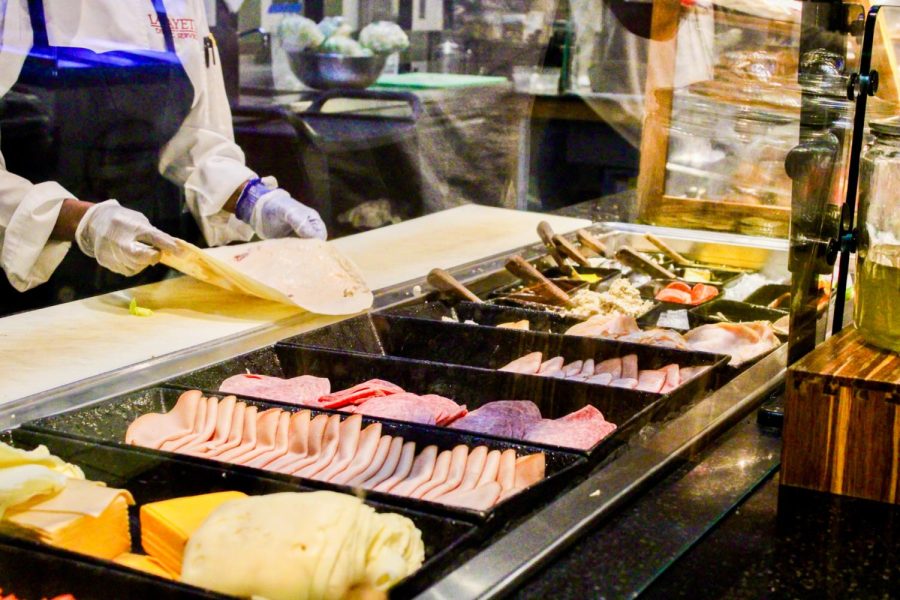Last month, signs were posted in dining halls advising students of a change to ingredients in some food products. The signs stated that because of global supply chain issues, the sunflower lecithin normally found in some cheese products was replaced with soy lecithin.
Soy lecithin, while listed by the Food and Drug Administration as a food allergen, is said by Great Lakes, the college’s supplier of some cheese products, to be tolerated by those with soy allergies.
Christopher Brown, the head of dining services at Cafe Bon Appetit, wrote in an email that he was not worried about how many students would be affected by this change and how severe such a shift could be for those allergic to soy.
“Student impact should be minimal,” Brown wrote. “Those who feel they will be impacted should consult with a healthcare professional.”
Brown believed only a handful of students would be affected by this change since most soy-allergic individuals can tolerate soy lecithin.
Caroline McParland ‘23 is one student potentially impacted by the ingredient shakeup. She expressed fear that the food she eats at the college could make her feel ill.
“I think the unknown is what makes me nervous and it usually makes me avoid those products anyway,” McParland said. “Having soy lecithin be added to even more food products in the future will definitely continue and increase that anxiety I feel when deciding what foods to eat. Since soy is one of the seven main allergies, I wish they didn’t have to make this change.”
The college recommends that those with soy allergies should speak with their healthcare providers for individual medical advice to see if they can safely consume products containing soy lecithin. It also recommends that food-allergic students, faculty or staff should review package labels more frequently and, if they have any questions, they should ask a chef or manager.
Individuals with soy allergies can call Brown at 610-330-5346.
























































































































